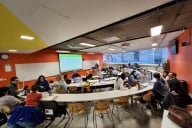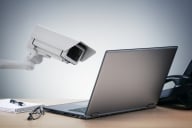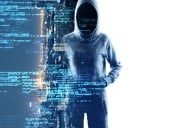You have /5 articles left.
Sign up for a free account or log in.
A federal appeals court on Monday invalidated Blackboard Inc.'s 1999 patent for its learning management software, overturning a lower court's decision last year finding that the Blackboard competitor Desire2Learn had infringed the giant's intellectual property.
Blackboard officials expressed disappointment but played down the significance of the ruling by the three-judge panel of the U.S. Court of Appeals for the Federal Circuit, saying that new patents gained by the company -- which Blackboard has again accused Desire2Learn of infringing -- essentially make moot the issues present in the lawsuit in question.
"The Federal Circuit’s decision does not affect Blackboard’s other patents or other efforts currently open in our effort to resolve the intellectual property disagreement we have with Desire2Learn," Matt Small, Blackboard's chief business officer, said in a prepared statement. "In fact, the issues raised by the Federal Circuit are not present in our other patents. Disputes like these have many steps and take a significant amount of time to resolve."
Desire2Learn, not surprisingly, had a very different take on the matter. "Given what we've been through in this lawsuit, to have it completely 180 degree reversed is a really big deal," said John McLeod, director of marketing for Desire2Learn. "To say the mood in the office is elated would be an understatement."
Monday's ruling by the appeals court is the latest development in a several-year court battle initiated by Blackboard in July 2006. The behemoth accused Desire2Learn of infringing dozens of Blackboard patents for online course management and e-learning technologies, and sought $17 million in damages and an injunction barring the Canadian company from continuing to infringe the patent.
After a two-week trial in Lufkin, Tex., a jury in a district court seen as friendly to patent holders ruled that Desire2Learn's learning platform used technologies for which Blackboard received U.S. patents, known collectively as the " '138 patent," in January 2006. But its verdict gave the company far less than it was asking for, awarding Blackboard $2.5 million for lost profits and $630,000 in royalties. The district court invalidated 35 of the 38 claims that Blackboard made against Desire2Learn, but backed three other claims related to what constitutes a "user" of a learning management system.
Both companies appealed the parts of the case they'd lost to the U.S. Court of Appeals for the Federal Circuit, which has nationwide jurisdiction over U.S. patent claims. Its highly technical decision upheld the lower court's conclusion that Blackboard's claims 1-35 were invalid. But the three-judge panel rejected the lower court's finding that Blackboard's patented learning system had originated the approach of giving a single user with a single log-in multiple roles, such as being a teacher in one course and a student in another.
The appeals panel embraced Desire2Learn's argument that such technology existed in "prior art," in this case previously existing course management systems such as Serf and CourseInfo 1.5. The appeals court essentially ruled that the lower court judge had framed Blackboard's claim incorrectly for the jury, said Bruce T. Wieder, a lawyer for the Washington firm of Dow Lohnes who was not involved in the case. Having done so, the Federal Circuit court "could have said, 'This is how you should have interpreted it, you go look at it again,' " Wieder said. "But instead, the court said, 'Since we've seen what was argued, we now can say that the district court wouldn't have come to any conclusion,' and declared those claims invalid."
Blackboard officials said they were weighing their options, which could include asking the entire Court of Appeals for the Federal Circuit to hear the case (known as seeking a hearing "en banc)," or requesting a hearing before the Supreme Court. But Wieder described both of those paths as unlikely to succeed, since the federal circuit "rejects 99 percent of cases" for en banc hearings, and the Supreme Court takes even fewer cases.
But Blackboard has already initiated another lawsuit against Desire2Learn, accusing the Canadian firm in April of infringing new U.S. patents that the company received on its software. So while company officials continue to reassure higher education technology officials and others that Blackboard has no intention of asserting its patent rights against "open source or home-grown course management systems that are not bundled with proprietary software," they show no signs of retreating in the wake of Monday's stinging defeat.









